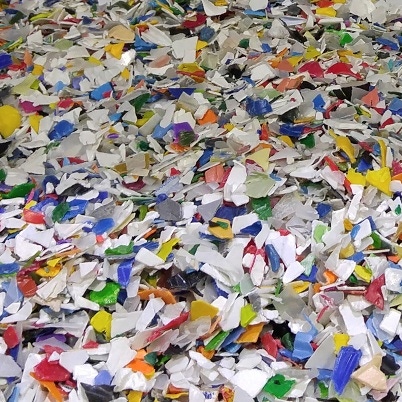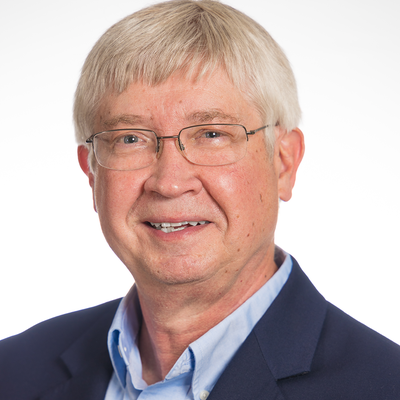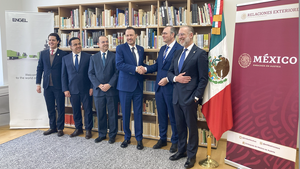Plastic resin producers and Circular Economy Goals: An interview with the ACC
We take a look behind the American Chemistry Council’s new landmark, goal-setting announcement in an interview with Steve Russell, ACC’s vp of plastics.


On behalf of the nation’s leading plastics resin producers, the Plastics Division of the American Chemistry Council (Washington, D.C.) announced on May 9 three goals designed to accelerate the industry’s transition to a more circular economy. These include:
1. 100% of plastics packaging will be re-used, recycled or recovered by 2040;
2. 100% of plastics packaging will be recyclable or recoverable by 2030; and
3. 100% of the U.S. manufacturing sites operated by ACC’s Plastics Division members will participate in Operation Clean Sweep-Blue by 2020, with all of their manufacturing sites across North America involved by 2022.
There’s a lot to unpack from this ambitious strategy, so I caught up with Steve Russell, ACC’s vice president of plastics regarding reactions, implications, innovations, challenges and more.
How long has this strategy (or position paper) been in process before the release?
Russell: For many years, America’s resin producers have partnered with governments, brand owners, nonprofits and others in numerous initiatives designed to significantly improve recycling and recovery of post-use plastics packaging.
However, we realized that to move beyond incremental progress we needed to set goals. So these new goals are designed to accelerate progress. The goals are informed by years of experience, evaluation of new technologies, and the commitments being sent by major companies in key value chains. In the end it was only a matter of weeks for our members to approve these goals, demonstrating that they are deeply committed to growing recycling, and in addition, to supporting their customers’ commitments to do the same.
What’s been the feedback thus far?
Russell: So far, the reaction has been extremely positive. A few have asked if we can go faster, but many more have noted that these are in fact very ambitious goals. We’ve been clear that we believe these are stretch goals, and that they are an important first step in establishing a common vision to further align everyone with a stake in growing plastics recycling and recovery. At the same time, we realize meeting these goals is going to be a challenge. It will require our industry’s best thinking combined with long-term collaboration, investment, agility and resolve.
Any notable or unexpected positive reaction from an individual or group?
Russell: Since making the announcement, brand owners, nonprofits, and even executives within our member companies have reached out with positive feedback. It’s now up to all of us to capture that enthusiasm to put in place the technology, systems and infrastructure we need to make it happen.
What’s Operation Clean Sweep-Blue? And why is that the first goal?
Russell: Operation Clean Sweep is a system of best practices designed to help contain plastic pellets at all stages of production, shipping, handling and use to minimize accidental releases to the environment. OCS-Blue is a higher standard of practices that includes submitting data that will be publically reported in aggregate over two- to three-year increments. All of our producer members already participate in Responsible Care and have undergone independent certification to ensure they have systems in place to continuously improve environmental performance. In addition, many of them already participate in OCS. Adopting OCS-Blue in resin production operations across North America will help fast-track the move toward greater circularity while keeping valuable plastics out of our oceans and waterways.
 Does this change the role or direction of plastics and/or bioplastics in any way?
Does this change the role or direction of plastics and/or bioplastics in any way?
Russell: Plastics, including bioplastics, will continue to be used in applications similar to today, but with greater opportunities in place to recycle and recover them afterward. Plastics are extremely efficient materials that are helping to lower environmental impacts in virtually every aspect of modern life. By increasing recycling and recovery options, we enable society to sustain economic growth while improving the environment for future generations.
What could be the most exciting changes related to pursuing these goals?
Russell: From an innovation standpoint, new technologies are being developed, some of which can convert used plastics back into basic building blocks, such as industrial chemicals—including monomers for new virgin plastics, waxes, lubricants,  and fuels. Our members are taking a strong interest in these technologies. We see expanding value chain partnerships and new business models as key to achieving greater circularity. And from a cultural standpoint, we hope these improvements will enable consumers to view used plastics as raw materials awaiting their next use. We need them to do their part, too.
and fuels. Our members are taking a strong interest in these technologies. We see expanding value chain partnerships and new business models as key to achieving greater circularity. And from a cultural standpoint, we hope these improvements will enable consumers to view used plastics as raw materials awaiting their next use. We need them to do their part, too.
Of the six key areas identified, is there any one of these that companies should or will focus on first or are all do-able in parallel?
Russell: We intend to focus on these areas: (1) designing new products for greater efficiency and repurposing, (2) developing new technologies and systems for collecting, sorting, recycling and recovering materials, (3) making it easier for more consumers to participate in recycling and recovery programs, (4) expanding the types of plastics collected and repurposed, (5) aligning those products with key end markets, and (6) and expanding awareness that used plastics are valuable resources.
Right now, there’s a lot of emphasis on end markets and seeking innovative ways to repurpose more plastics. In one exciting example, Agilyx (Tigard, OR) is using chemical recycling to create styrene monomer from post-use polystyrene, and Americas Styrenics (The Woodlands, TX) has agreed to purchase that monomer to make new (virgin) polystyrene resin.
About the Author(s)
You May Also Like




